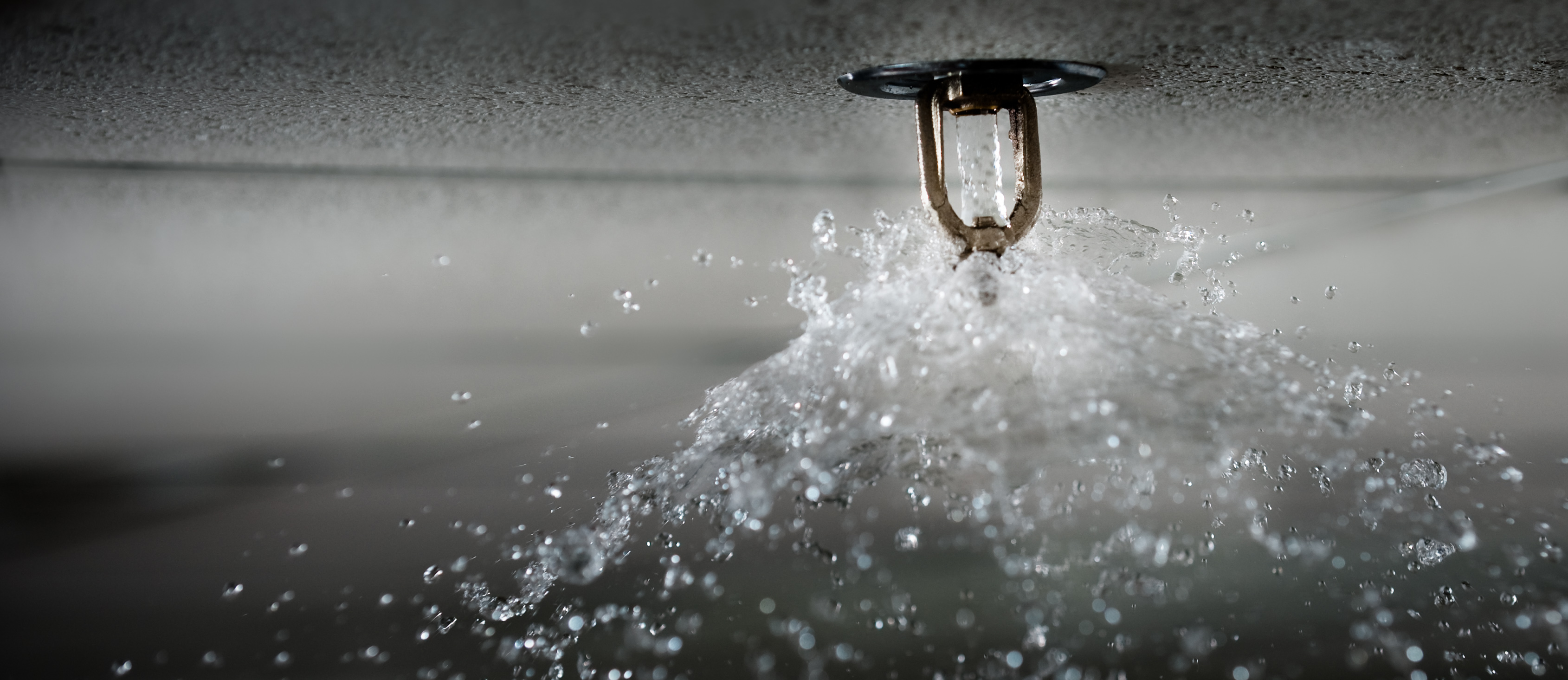The majority of public buildings have some sort of fire sprinkler system installed. From workplaces such as offices and factories, to schools and museums, sprinklers are an integral part of the overall fire protection system. However, in the United Kingdom, approximately three-quarters of the deaths which occur each year as a result of fire happen in a domestic situation. This worrying statistic has led to growing calls for sprinkler systems to be made compulsory in all new build domestic properties.
The presence of either a sprinkler or misting system could make the crucial difference when it comes to surviving a domestic fire. As reported by the Eastern Daily Press, there have been a number of instances recently where a sprinkler system could have saved lives. The Norfolk Fire and Rescue Service have likened the presence of a sprinkler in the home to having a personal firefighter. With over 100 years of sterling service behind them, sprinklers continue to be a vital weapon in the fight against fire.
A Long-running Campaign
Currently, it is a legal requirement for all high-rise buildings and large commercial premises to have a sprinkler system installed. As previously mentioned, the majority of public buildings utilise sprinklers too. However, despite it being compulsory in Wales since 2011, domestic homes in England do not currently need to have sprinklers installed by law.
Campaigners have been lobbying the government for mandatory sprinklers in domestic homes for a number of years now. Many people involved in the campaign believe there may be a reluctance on the government’s behalf to bring in further regulations for home builders. The cost of installing such equipment in all new homes could also be a factor. However, with new misting systems increasing in popularity, the question of cost may not be a stumbling block for much longer.
A Cost-effective Alternative
The Derby Telegraph recently revealed how the life of a pensioner was saved by the presence of a misting system in her home. In general, these alternatives to the sprinkler system cost only half as much to install, making them a viable option for construction companies on tight budgets. Mainpoint, Automist installers in Bristol, are just one of the many fire protection companies which now recommend this type of system. Dispensing water in a fine mist instead of streams, there is less potential for serious water damage to properties too.
There have been many studies carried out into the whys and wherefores of making fire sprinklers compulsory in new builds. Those in favour of the motion point to the excellent safety record of such systems, rating sprinklers and misters as being amongst the most effective forms of fire-fighting equipment. In contrast, those opposed to the move for compulsory sprinklers say that such a big change to the regulations is not cost-effective and could potentially push up the price of new homes. It seems that this issue has a few more twists and turns to negotiate before finally being resolved.

